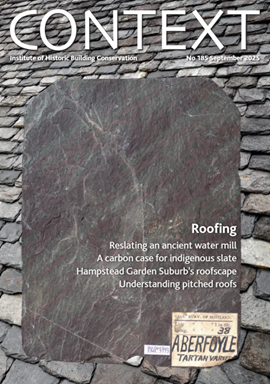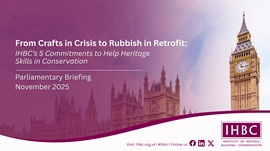Challenges of Facilities Management Practice in Nigeria
[edit] What is Facilities management?
Facilities management or facility management (FM) can be described as a profession; a separate business entity or organisation; a department/function within an organisation; a process or service.
As a process, ISO (the International Organisation for Standardisation) describes facility management as a process that integrates multiple disciplines in order to have an influence on the efficiency and productivity of economies of societies, communities and organisations, as well as the manner in which individuals interact with the built environment. Its (Facility Management) functions affect the health, well-being and quality of life of many of the world’s societies and population through the services it manages and delivers (ISO 41001:2018).
As a function, “Facility Management is an organisational function which integrates people, place and process within the built environment with the purpose of improving the quality of life of people and the productivity of the core business” IFMA.
As a department/function within an organisation, FM involves the development, coordination, and management of all the non-core specialist services of an organisation together with the building and their systems, plant, IT equipment, and fittings with the overall aim of assisting any given organisation in achieving its strategic objectives (Moore and Finch, 2004).
As a profession, facility management is multi-disciplinary (Nutt, 1999), a wide range of skills and knowledge (Nazali et al., 2009), that focusses on integrated management of the workplace to enhance the performance of the organisation (Tay and Ooi, 2001) and a very broad range of possible activities (Alexander, 1993; Chotipanich, 2004).
Facility manager is that person that ensures the system of a building and its environment work seamlessly together through planning, evaluating, and maintaining building systems.
[edit] History of professional facility management in Nigeria.
The development of facility management started earlier in Europe and USA, globalisation has necessitated the standardisation of practice, product and service and in effect, Nigeria as well as other African countries have braced up for development and recognition in the future of facility management (Oladokun, 2011).
Pre independence era, Nigeria a country rich in mineral resources was under the colonisation of the British. The colonial era brought about some infrastructural and facility development primarily to serve the interests of the colonial masters. At the country’s independence in 1960, Nigeria’s government was formed and owing to the crude oil boom, the government rapidly advanced massively in delivering several successful developmental projects but the government had little plan for sustaining these projects.
The practice of facility management or government project maintenance in public sector in Nigeria was held under the Public Works Department (PWD), this government parastatal, amidst its limitations, did not do well in sustaining these projects as many of these government facilities were poorly maintained, managed and destroyed within a short period of time after commissioning (Opaluwah, 2010).
In more recent years, sometime in 1995, some Mobil, Chevron and other professionals from around the Lagos metropolis came together to inspire quality improvement aimed at bringing the international standards of facility management to bear on the maintenance of infrastructure in Nigeria. This is what led to the formation of International Facility Management Association (IFMA) Nigeria Chapter. IFMA Nigeria is a not-for-profit Association incorporated in 1997 and is an affiliate of IFMA worldwide with headquarters in Houston USA. The Association is dedicated to promoting excellence in the management of the work environment.
The concept of facilities management in the private sector have gained wider popularity recently in Nigeria due to the increase in influx of capital investments in the real estate sector. As a growing multi-discipline profession, many organisations have embraced facility management as a system that entails the coordination, control and management of the support services necessary to maintain business operation and allow it to achieve its corporate goals. Private sector and public alike, have found more incentives to engage professionals to minimise costs of building maintenance, maximise profit and protect their long-term investments in real estate through provision of facilities management services.
[edit] The functions of Facilities Management
According to Aderemi (2022) in his article “How Facility Management Optimize Work Productivity” he described six broad based field of study that are incorporated in professional facility management practice to include the principle of Science, Design and Engineering Technology, Human Resources, Business Administration, Financial Management, and Health and Safety in delivering optimal work productivity.
Until recently, facilities management was considered more as an afterthought service and facilities managers would not get a seat at the top management strategic and decision-making meetings Osagie (2004). During this era, the role of facility manager was constricted to mainly cost saving, profit maximisation and operation and sustenance of equipment lifecycle. Facility managers carry out very wide range of functions which can be categorised into strategic, management and operational facility management (Chotipanich, 2002).
At strategic level, the facility manager directs the facilities, services and practices to improve on income, productivity and sustainability. The management level seeks to achieve set goals in the areas of planning, forecasting, implementing, integrating, controlling and monitoring project management to achieve greater performance. The operational function of facility management centers on cost effective ways of running the day-to-day delivery of services, quality assurance and customer satisfaction.
[edit] Some factors influencing the growth of facilities management in Nigeria
Technology: The fast pace of technological revolution in the 21st century have occasioned the introduction of smart technologies, automation and IoT solutions in facilities management operations. Things are simply not done the same way again, hence organisations are striving to keep up with the advancements and constantly in search of innovative ways to stay ahead in business.
Customer demands and preferences: In today’s world of so many options, customers are now faced with endless and multiple options of needs and wants. Since facilities management is about people and service, facility managers have inevitably enroled in the pursuit of enhanced customer service delivery, smart and sophisticated solutions, effective and accessible communication everywhere you go, healthy, safety and efficient systems, and cost saving alternatives.
Growth in infrastructural and real estate development: Nigeria’s real estate value at around USD5.3 billion. According to the GDP Report for Q1 2021 published by the National Bureau of Statistics, Nigeria's real estate sector grew by 1.77%, contributing a total of 5.28% to the real GDP of the country for the period under review. The growing demand for real estate development to cater for the increasing population and housing deficit promises a further increase in flow of investment in the facility management sector and real estate at large.
Health, Safety and Environmental regulations: The United Nations Millennium Development Goals (MDGs) were introduced and agreed on at the united nation millennium summit in September 2000 with nearly 190 countries, including Nigeria as signatories to the agreement. This confers tremendous responsibility on the Nigeria’s government to contribute to green energy and healthier environment though policy and regulatory reforms on the Nigerian.
These policies reforms and regulatory requirements are sometimes mandatory and therefore compels facility managers to keep vibrant and adaptive policies in order not to fall on the wrong side of the law. In 2020, the world witnessed a catastrophic pandemic that shock the entire planet. In the effort to combat this outbreak, facility managers in both public and private space were saddled with the core responsibility of safeguarding the lives of all facility users in all public places. This kind of experience have birthed sophistications in the deployment of facility management operations across board.
Multi-disciplinary nature of facility management: Facility management as a varied career requires 11 core competencies according to IFMA, these eleven core competencies of facility managers are finance and business, operations and maintenance, leadership and strategy, project management, communications, performance and quality, facility information management and technology management, occupancy and human factors, real estate, risk management and sustainability.
The British Institute of FM notes that Facility Management is the integration of multi-disciplinary activities within the built environment and the management of their impact upon people and the workplace. This multifaceted career dimension in facility management functions have impacted positively in its growth and development over the years. Relevant professions’ development and their professionals research inputs have expanded the overall understanding, delivery and performance of facility management function in private and public sector alike.
[edit] Factors that hinder facility management development in the Nigeria’s public sector
Whilst most of these factors are perennial in nature, some are due to absence of will power on the part of government to step up infrastructure maintenance and general lack of accountability for public funds.
- Inadequate budgetary allocation for infrastructure and facility maintenance
- Inadequate skilled professionals
- Poor maintenance culture which focusses more on breakdown/reactive maintenance rather than planned preventive maintenance and proactive planning
- Lack of FM policies and where they exist, they are not well implemented
- Wrong priorities and misappropriation of funds on the part of the Government
- Administrative and Bureaucratic bottlenecks in Government
- Poor infrastructure, Faulty Designs i.e. poor lighting and ventilation to building, and shoddy construction works with substandard building materials
- Epileptic public power supply on the grid
- Improper or wrong usage of facilities
- Public unrest and facility vandalism
[edit] The challenges of facilities management in the private sector
The challenges faced by facility managers vary and they depend on size, scope, operational context or environment within which the facility manager operates. These challenges are either internal i.e. within the organisation’s structure and culture, human resources, internal processes and budget or external i.e. market environment, competition, technology, and government regulations.
Bako (2020) names finance as the greatest challenge facing the facility management companies in Nigeria, whilst other problems comprises of technology, sustainability, operational efficiency, bye-law compliance, stakeholder needs and manpower problems.
Common facility management company challenges are erroneous customer performance reviews, inadequate funding by the client engaging the facility management company, unstable government policies or market forces, awkward takeover and acquisition… to read more, please check the article How facility management optimize wok productivity by Aderemi, 2022.
Oladokun, 2011 added:
- Lack of recognition: The profession is still at its infancy in Nigeria and therefore not so many people are aware of its relevance and professional requirements in our day-to-day lives. Many still find the concept of paid services, service charge and SLA strange while some considers facility management function simple enough to be undertaken by any group of interested stakeholders, property caretakers, property agents or even an unskilled relative of the property owner.
- Education and training needs; Nazali et al. (2009) argued that effective FM encompasses multiple activities under various disciplines, combines resources and is vital to the success of any organisation. These broad-based skills set required to function effectively as facility manager inherently creates knowledge and skills gaps which compels continuous trainings and career development expenditure for the facility manager or facility management company.
- Career pathways: The average salary of facility manager in some companies or facility management organisation is not very attractive except for some top multinationals whose pay structure is benchmarked by international office counterparts. This may be due to the measure of the negotiating power a facility manager or facility management company commands at the negotiation table. This modest pay offering may not motivate anyone who wishes to grow a promising and lucrative career endeavour in facility management.
- Performance benchmarking: From my years of observation, I noticed that many new entrants small FM companies don’t have a signed service level agreement (SLA) and where it exists, they either have erroneous definitions or not detailed enough to reflect proper scope, expectations and performance indicators and monitoring of the expected service delivery by both contracting parties. This lacuna has led to untimely, biased and wrong assessment of performance, engagement and dissolution of facility management contracts.
Still focusing on the private sector, (Osagie, 2004) in his own views, identifies the following problems:
- i. Conception of idea – this refers to the undecidedness of the facility owner to onboard a facility manager on the problem timely enough thereby leading to poor planning and late on boarding of the FM company or facility manager as the case may be.
- ii. Disharmony between the facility management company and the client on ideas and organisation’s views
- iii. The problem of funding the cost of employing a facility manager
- iv. The difficulties in assembling skilled and experienced facility management team
- v. The failure to include facility management professionals in the design, planning and execution stages of the project.
- vi. Frequent change in the ownership or management of the organisation may have an impact on the facility management policies and operations.
- vii. Inadequate training of facilities manager and high cost of doing same.
[edit] The challenges of facility management for in house facilities manager
Chinedu and Oladejo (2019) from their research, opined that some of the common challenges of facilities management include poor funding, bureaucracy, environmental factors, aging workforce/skills gap, safety/healthcare cost, regulatory compliance and difficulty in procuring materials.
- Common In house facility management challenges
- No corporate commitment of leadership to support program
- Lack of communication among cross-functional departments
- Complex and disparate data sets present a significant road block
- Insufficient resources with necessary skills and experience
[edit] How to overcome the challenges of facility management
Overcoming these challenges requires a degree of determination, collective efforts on the part of the practitioners and key stakeholders, accessible and affordable career training and development, regulatory framework and standardisation.
The objective of this article is to identify the problems facing the facility management practice in Nigeria and to anticipate that its content would be beneficial for facility management companies and facility managers in search of developing suitable solutions to the overriding challenges. It is believed that the expository content will generate solution-based conversations and overall development of facility management practice in Nigeria.
[edit] Related article on Designing Buildings
- A better investment framework for Africa.
- Africa tops world AC growth forecasts.
- Asset information model.
- Asset management.
- BIM and facilities management.
- BS 8210:2020 facilities maintenance management code of practice.
- BS EN 15221.
- BSRIA updates Handover and O&M manuals.
- Building manager.
- Building services and health risk resilient buildings.
- Computer aided facilities management.
- Computerised managed maintenance system CMMS.
- Design, build, finance, maintain DBFM.
- Digital construction future for Africa now.
- Enterprise asset management.
- Facilities management.
- Facilities management audit FMA.
- Facility condition assessment FCA.
- Facility condition index FCI.
- FM Navigate.
- Hard facilities management.
- ISO 41001:2018.
- Maintenance.
- Maintenance contracts - a guide to best practice for procurement.
- Maintenance Repair Operations MRO.
- NEC4 Facilities Management Contract.
- Operation, maintenance and training (OMT).
- Operational costs.
- Property management.
- Reliability centred maintenance.
- Requirements management.
- Soft facilities management.
- Statutory Compliance Inspection Checklist.
- Sustainability in facility management.
- These giant infrastructure projects are set to reshape Africa.
- Work order management system.
[edit] External References
Alexander, K. (Ed) (1993) Facilities Management 1993, Salford: Centre for Facilities Management and Hastings Hilton Publishers Ltd
An Examination of the Practice of Facilities Management in Nigeria. Department of Estate Management Obafemi Awolowo University, Ile Ife - Nigeria by Timothy Tunde Oladokun 2011.
Moore, M. and Finch, E. (2004) Facilities Management in South East Asia, Facilities, 22(9/10), pp.259-270.
Assessment of Challenges Facing Facility Managers in the Nigerian Industry. Saminu Sani Bako 2020.
Chotipanich, S. (2004) Positioning Facility Management, Facilities, 22 (13/14), pp.364-372.
Problems Of Facilities Management In Corporate Organizations In Lagos State (A Case Study Of Some Selected Manufacturing Industries) By Oladejo, Esther Ifeanyichukwu (2009).
Facilities Management in the Nigerian Public Sector by Samson A. Opaluwah 2010
https://www.rpfacilities.com/post/challenges-of-facilities-management-practice-in-nigeria
What is Facility Management? By International Facility Management Association
ISO 41001:2018 Facility management — Management systems
Tay, L. and Ooi, J. T. (2001) Facilities management: a “Jack of all trades”? Facilities, 19(10), pp. 357-363.
https://www.linkedin.com/company/rp-facilities-management/
#facilitymanager #facilitymanagement #facilitymanagerjob #facilitymanagertraining #facilitymanagementdevelpment #ifmanigeria #propertymanager
IHBC NewsBlog
Latest IHBC Issue of Context features Roofing
Articles range from slate to pitched roofs, and carbon impact to solar generation to roofscapes.
Three reasons not to demolish Edinburgh’s Argyle House
Should 'Edinburgh's ugliest building' be saved?
IHBC’s 2025 Parliamentary Briefing...from Crafts in Crisis to Rubbish Retrofit
IHBC launches research-led ‘5 Commitments to Help Heritage Skills in Conservation’
How RDSAP 10.2 impacts EPC assessments in traditional buildings
Energy performance certificates (EPCs) tell us how energy efficient our buildings are, but the way these certificates are generated has changed.
700-year-old church tower suspended 45ft
The London church is part of a 'never seen before feat of engineering'.
The historic Old War Office (OWO) has undergone a remarkable transformation
The Grade II* listed neo-Baroque landmark in central London is an example of adaptive reuse in architecture, where heritage meets modern sophistication.
West Midlands Heritage Careers Fair 2025
Join the West Midlands Historic Buildings Trust on 13 October 2025, from 10.00am.
Former carpark and shopping centre to be transformed into new homes
Transformation to be a UK first.
Canada is losing its churches…
Can communities afford to let that happen?
131 derelict buildings recorded in Dublin city
It has increased 80% in the past four years.

















Comments
[edit] To make a comment about this article, click 'Add a comment' above. Separate your comments from any existing comments by inserting a horizontal line.
[edit]